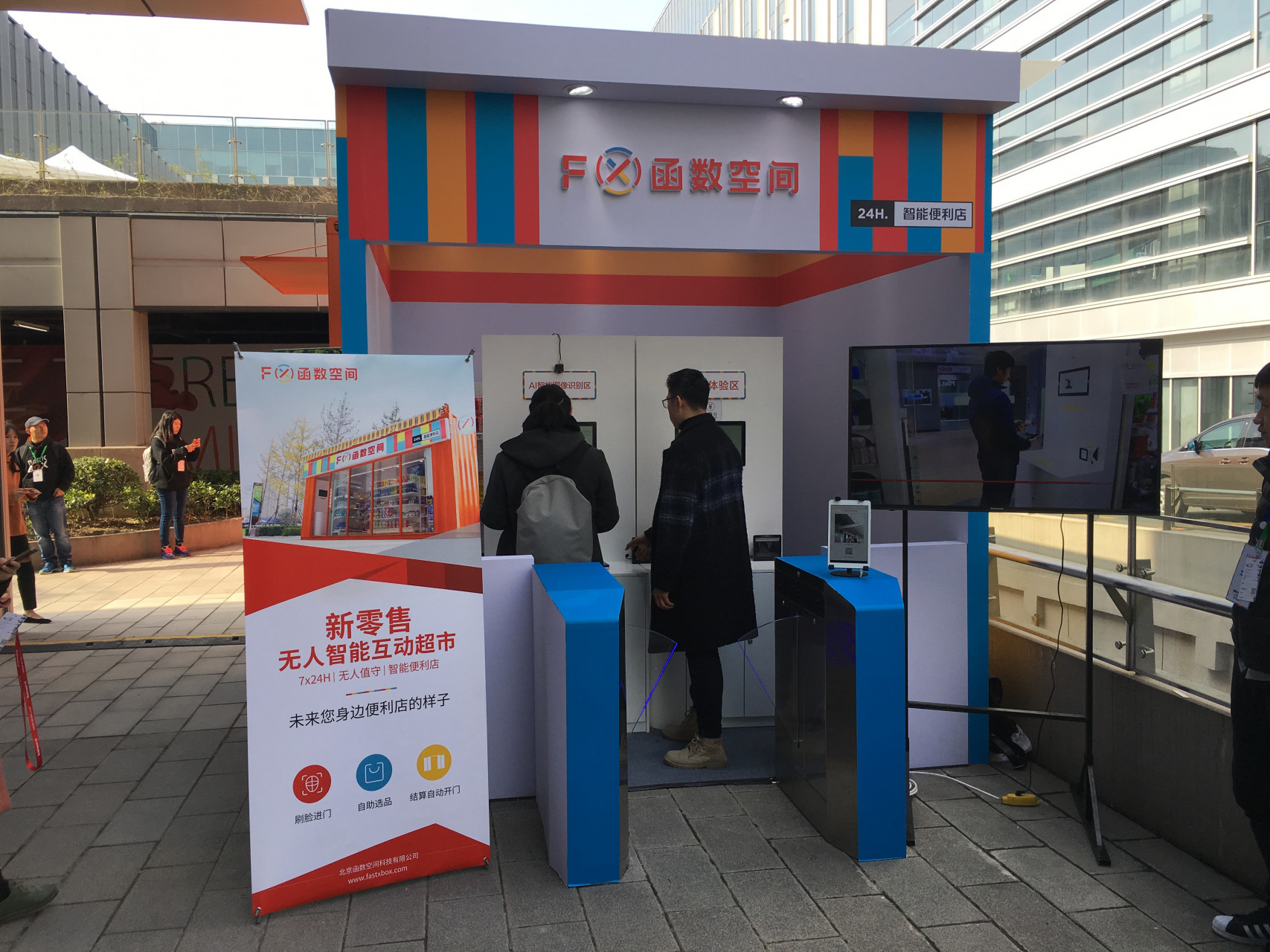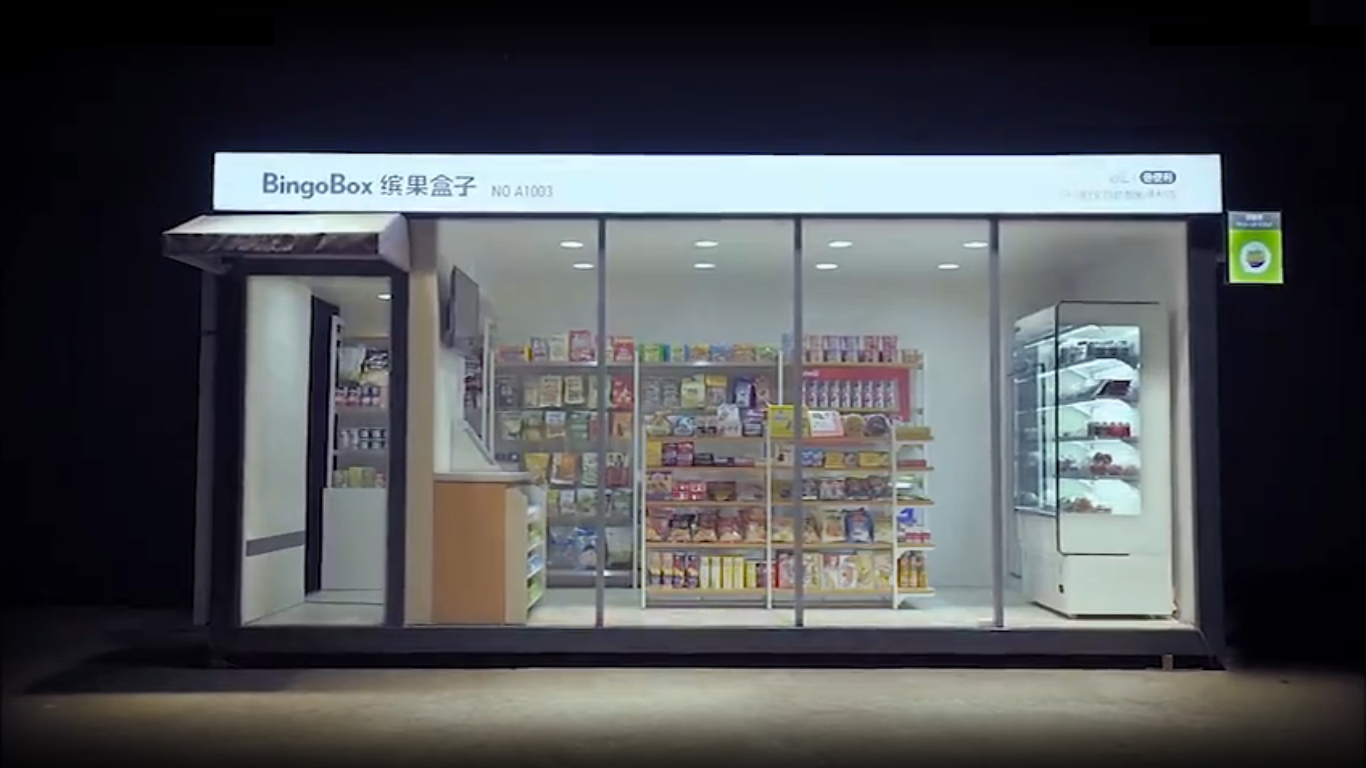Shoplifting Not Believed to Be a Problem for Unmanned Stores
This post comes courtesy of our content partners at TechNode.

Since Amazon envisioned its staff-less store concept last year, shoplifting has been one of the major concerns that people have raised to question the sustainability of this new shopping model. It’s natural to speculate that unmanned stores will face more shoplifters due to the absence of shopkeepers, guards, cashiers, or whomever onsite to keep an eye on the behavior of shoppers. But those who are working on the frontier of this innovation think otherwise.

“Risk control is probably the first word that comes to mind when talking about unmanned stores. But with the support of technology, the rate for stolen or damaged goods in our automatic stores is far lower than in traditional retailers,” says Chen Zilin, founder and CEO of BingoBox, at TechCrunch Shanghai today in a panel dedicated to China’s burgeoning staffless store market.
As a forerunner in the vertical, BingoBox is a 24-hour self-service convenience store that allows customers to enter and make payments through a simple smartphone scan. Their risk control is mainly achieved through a smart retail shelving system equipped with cameras, which will capture the customers’ actions and collect data. Videos detecting irregular behaviors will be sent to the backend to be double-checked by employees.
“There are thousands of ways for kleptomaniacs to steal from stores, staffed or unstaffed. But not everyone is determined to steal something at the moment of entering the shops. Our goal is to tell the shoppers that any stealing behavior will be recorded and we can target these behaviors with accuracy,” said Chen.
Personal accountability is another important factor in the company’s risk control solution. Although it’s not 100% necessary, BingoBox still has a cashier's station where customers register before actually making a payment. “By doing so, we aim to integrate the judgment and moral force of the customers in a bid to avoid any misjudgments.”

Another speaker at the panel, Chen Haibo, founder and CEO of artificial intelligence solutions provider DeepBlue, echoed Chen’s ideas. “Technology can’t solve moral issues. At the pilot stage, our system has experienced lots of extreme testing from venture capitalists and peer entrepreneurs. They tried everything to steal the goods. But when they tried to enter the shop a second time, they weren’t admitted because there’s a bad record or unpaid bills. We could even find the videos if they wanted to challenge it.”
“When people know they are entering a closely monitored environment, I don’t think they will behave irresponsibly. Our previous experience shows 99% of the users will act in a responsible way. So I don’t think we should place excessive attention on theft issues,” he added.

Self-service convenience store startups became the new darling for Chinese investors over the past few months with the entrance of lots of players, big and small. Alibaba launched its Tao Café in late August, while JD Daojia rolled out an unmanned shelf in October. Smaller players include Xingbianli, Easyhome, and more. The trend is also having an impact on traditional convenience retail chains like Japanese convenience store giant Lawson, which have set up two pilot autonomous stores in Shanghai.
READ: April Gourmet Opens its First Fully-Automated Store in Beijing
From ride-hailing to bike sharing and fintech, Chinese tech startups grow on a bumpy road along with the improvement of the regulatory landscape. The unmanned store industry, a sector already gaining attention from the market, is no exception. “Both entrepreneurs and the government are more mature. Beijing is reacting swiftly to the new innovations. The Ministry of Commerce is now drafting the new standard for this new sector,” said Cheng Zilin.
Images: chinachannel.co, TechCrunch China, TechNode

